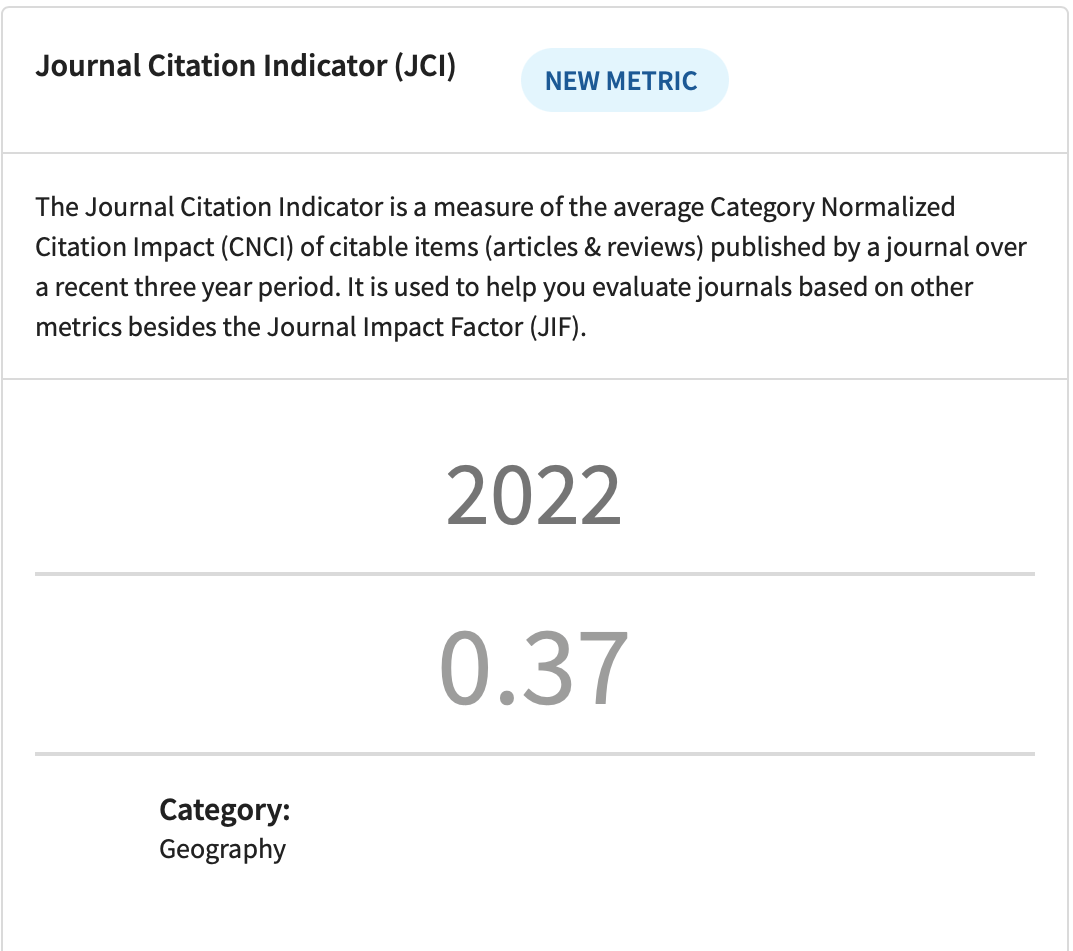APPLICATION OF SUSTAINABLE DEVELOPMENT PRINCIPLES IN HOTEL BUSINESS
DOI:
https://doi.org/10.2298/IJGI1801101MKeywords:
hospitality industry, sustainable development principles, employees’ perception, job satisfaction, business commitmentAbstract
Tourism development, if not sustainable, could threat and affect the environment as an object of tourists’ interest. Accordingly, hotels as a type of tourism organizations within a destination, are trying to involve sustainable business activities in their operations in order to protect the environment. In hotels within developed countries, sustainable activities are already implemented in the business and they are in the balance with the environment. However, implementation of these activities within societies in transition, such as Serbia, is still in initial level, which is confirmed in this research. The subject of this paper is, therefore, oriented toward the business activities of hotels located within Kopaonik, popular destination of winter tourism and National Park of Serbia, and these activities are researched through the employees’ perspective of ecological, socio-cultural and economic principles of the hotel business. Methods used in the paper are: descriptive, comparative, statistical and the critical one. Also, a survey research was conducted for the purpose of the paper and it obtained a sample of 211 hotel employees. The research results explained the current state within the hotel business of Kopaonik related to activities focused on ecological, socio-cultural and economic principles of sustainable development. Also, results indicate the level of employees’ job satisfaction and the level of their job commitment in accordance with hotels’ involvement in sustainable practices. All researched constructs of the paper are interpreted as important aspects of Kopaonik’s sustainability on the tourist market.
Article metrics
References
Almomani, I., Nasseef, M. A., Bataine, F., & Ayoub, A. (2017). The effect of environmental preservation, advanced technology, hotel image and service quality on guest loyalty. International Journal of Business Administration, 8(4), 49. doi: https://doi.org/10.5430/ijba.v8n4p49
Balzarova, M. A., & Castka, P. (2008). Underlying mechanisms in the maintenance of ISO 14001 environmental management system. Journal of Cleaner Production, 16(18), 1949-1957. doi: https://doi.org/10.1016/j.jclepro.2008.01.007
Bartula, М. (2017). Održivi razvoj i životna sredina. Belgrade: Singidunum University, Faculty of Applied Ecology Futura.
Bojović, G. (2012). Kopaonik i banje u podgorini. Belgrade: Serbian Geographical Society.
Bowe, R. (2005). Going green: Red stripe, yellow curry and green hotels. The Environmental Magazine, 16(1), 52-53.
Chan, E. S. W. (2008). Barriers to EMS in the hotel industry. International Journal of Hospitality Management, 27(2), 187-196. doi: https://doi.org/10.1016/j.ijhm.2007.07.011
Chan, E S. W., & Hawkins, R. (2010). Attitude towards EMSs in an international hotel: An exploratory case study. International Journal of Hospitality Management, 29(4), 641-651. doi: https://doi.org/10.1016/j.ijhm.2009.12.002
Chan, E. S. W., & Wong, S. (2006). Motivations for ISO 14001 in the hotel industry. Tourism Management, 27(3), 481-492. doi: https://doi.org/10.1016/j.tourman.2004.10.007
Cronin, J. J., Smith, J. S., Gleim, M. R., Ramirez, E., & Martinez, J. D. (2011). Green marketing strategies: An examination of stakeholders and the opportunities they present. Journal of the Academy of Marketing Science, 39, 158-174 doi: https://doi.org/10.1007/s11747-010-0227-0
Font, X., Garay, L., & Jones, S. (2016). Sustainability motivations and practices in small tourism enterprises in European protected areas. Journal of Cleaner Production, 137(20), 1439-1448. doi: https://doi.org/10.1016/j.jclepro.2014.01.071
Handfield, R. B., Melnyk, S. A., Calantone, R. G., & Curkovic, S. (2001). Integrating environmental concerns into the design process: The gap between theory and practice. IEEE Transactions on Engineering Management, 48(2), 189-208. doi: https://doi.org/10.1109/17.922478
Hu, W., & Wall, G. (2005). Environmental management, environmental image and the competitive tourist attraction. Journal of Sustainable Tourism, 13(6), 617-635. doi: https://doi.org/10.1080/09669580508668584
Jovičić, D., & Ilić, T. (2010). Indikatori održivog turizma. Glasnik Srpskog geografskog društva, 90(1), 277-305. doi: https://doi.org/10.2298/GSGD1001277J
Lee, C-K., Song, H-J., Lee, H-M., Lee, S., & Bernhard, B. J. (2013). The impact of CSR on casino employees’ organizational trust, job satisfaction, and customer orientation: An empirical examination of responsible gambling strategies. International Journal of Hospitality Management, 33, 406-415. doi: https://doi.org/10.1016/j.ijhm.2012.10.011
Leonidou, L. C., Christodoulides, P., & Thwaites, D. (2016). External Determinants and Financial Outcomes of an Eco-friendly Orientation in Smaller Manufacturing Firms. Journal of Small Business Management, 54(1), 5-25. doi: https://doi.org/10.1111/jsbm.12121
Leonidou, L. C., Christodoulides, P., Kyrgidou, L. P., & Palihawadana, D. (2017). Internal Drivers and Performance Consequences of Small Firm Green Business Strategy: The Moderating Role of External Forces. Journal of Business Ethics, 140(3), 585-606. doi: https://doi.org/10.1007/s10551-015-2670-9
Martin-de Castro, G., Amores-Salvado, J., & Navas-Lopez, J. E. (2016). Environmental Management Systems and Firm Performance: Improving Firm Environmental Policy Through Stakeholder Engagement. Cosporate Social Responsibility and Environmental Management, 23(4), 243-256. doi: https://doi.org/10.1002/csr.1377
Molina-Azorin, J. F., Claver-Cortes, E., Pepeira-Moliner, J., & Jose Tari, J. (2009). Environmental practices and firm performances: An empirical analysis in the Spanish hotel industry. Journal of Cleaner Production, 17(5), 516-524. doi: https://doi.org/10.1016/j.jclepro.2008.09.001
Montabon, F., Sroufe, R., & Narasimhan, R. (2007). An examination of corporate reporting, environmental management practices and firm performance. Journal of Operations Management, 25(5), 998-1014. doi: https://doi.org/10.1016/j.jom.2006.10.003
Pazarac, J. (2011). Značaj prirodnog i ekoturizma u afirmaciji ekoloških problema NP Kopaonik. Bachelor Thesis, University of Novi Sad, Serbia.
Porritt, J. (2003). The world in context beyond the business case for sustainable development. Cambridge: University of Cambridge, Cambridge Institute for Sustainability Leadership.
Ramus, C. A. (2001). Organizational Support for Employees: Encouraging Creative Ideas for Environmental Sustainability. California Management Review, 43(3), 85-105. doi: https://doi.org/10.2307/41166090
Raub, S., & Blunschi, S. (2014). The power of meaningful work: How awareness of CSR initiatives fosters task significance and positive work outcomes in service employees. Cornell Hospitality Quarterly, 55(1), 10-18. doi: https://doi.org/10.1177/1938965513498300
Shaw, R. (2003). Maintain satisfaction. Hotel and Motel Management, 218(3), 10-12.
Statistical Office of the Republic of Serbia (2017a). Tourist arrivals for March 2017 (Statistics for tourism and hospitality, Announcement No. 108). Belgrade: Statistical Office of the Republic of Serbia. Retrieved from: http://webrzs.stat.gov.rs/WebSite/repository/documents/00/02/47/16/ut10042017.pdf
Statistical Office of the Republic of Serbia (2017b). Tourist arrivals for February 2017 (Statistics for tourism and hospitality, Announcement No. 83). Belgrade, Statistical Office of the Republic of Serbia. Retrieved from: http://webrzs.stat.gov.rs/WebSite/repository/documents/00/02/45/03/ut10032017.pdf
Statistical Office of the Republic of Serbia (2017c). Tourist arrivals for January 2017 (Statistics for tourism and hospitality, Announcement No. 42). Belgrade: Statistical Office of the Republic of Serbia. Retrieved from: http://webrzs.stat.gov.rs/WebSite/repository/documents/00/02/41/64/ut10022017.pdf
Statistical Office of the Republic of Serbia (2017d). Tourist arrivals for December 2016 (Statistics for tourism and hospitality, Announcement No. 18). Belgrade: Statistical Office of the Republic of Serbia. Retrieved from: http://webrzs.stat.gov.rs/WebSite/repository/documents/00/02/39/66/ut10012017.pdf
Stojanović, V. (2011). Turizam i održivi razvoj. Novi Sad: University of Novi Sad, Faculty of Sciences, Department of Geography, Tourism and Hotel Management.
Vujicic, M., Ristic, L., & Ciric, N. (2013). Local Initiatives for Rural Vitality and Social Inclusion: Some Experiences from Serbia. Eastern European Countryside, 19, 105-125. doi: https://doi.org/10.2478/eec-2013-0006
Wallace, G., & Russell, A. (2004). Eco-cultural tourism as a means for the sustainable development of culturally marginal and environmentally sensitive regions. Tourist Studies, 4(3), 235-254. doi: https://doi.org/10.1177/1468797604057326
Downloads
Published
How to Cite
Issue
Section
License
Copyright (c) 2018 Journal of the Geographical Institute “Jovan Cvijić” SASA

This work is licensed under a Creative Commons Attribution-NonCommercial-NoDerivatives 4.0 International License.











